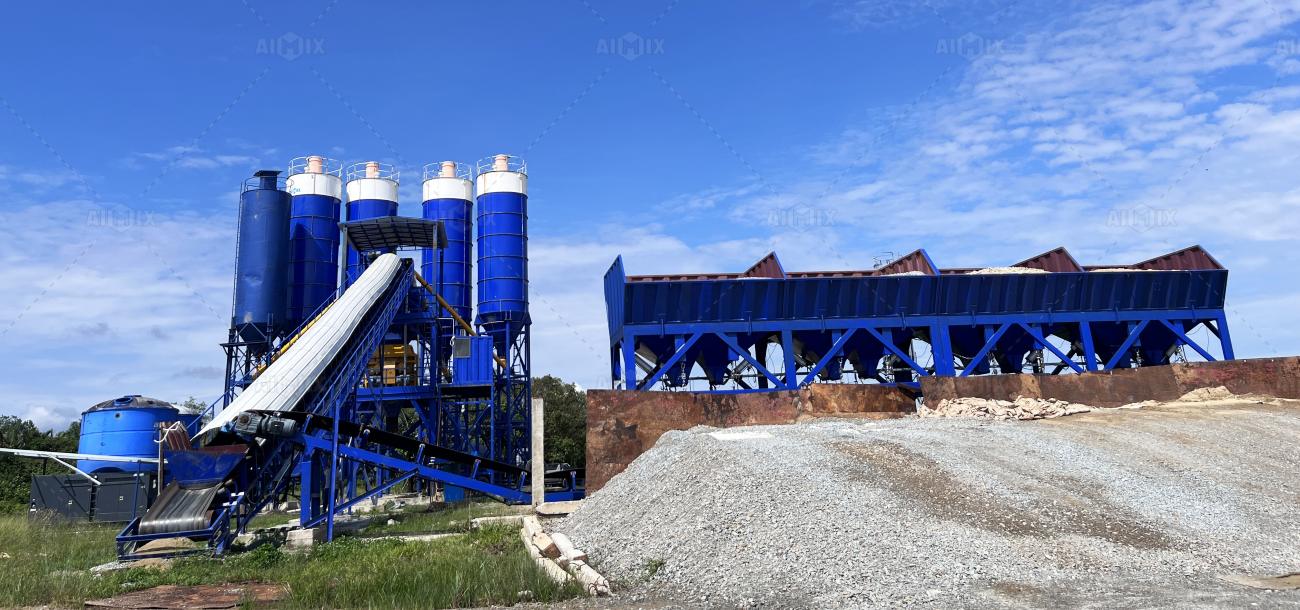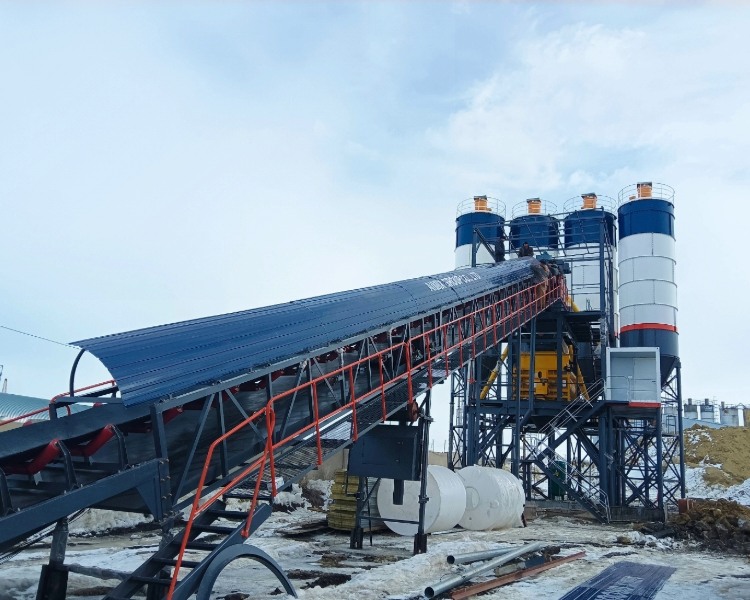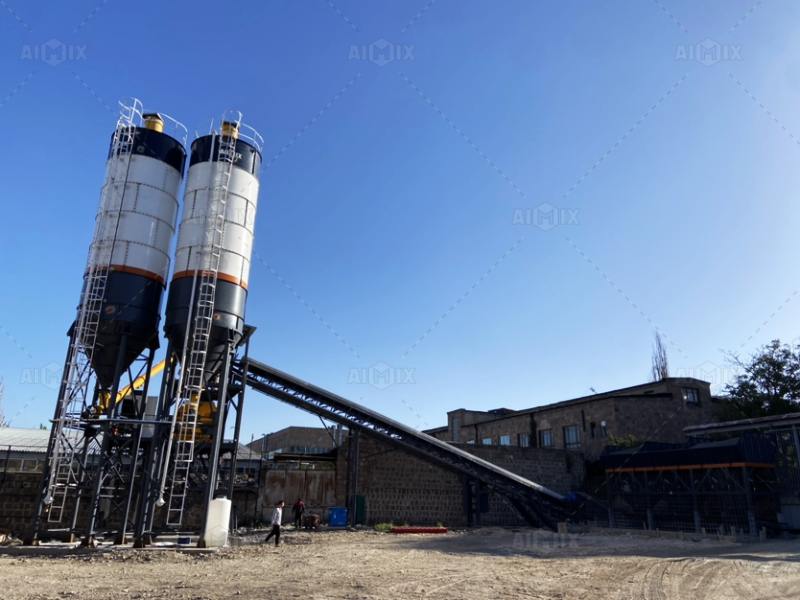The construction industry is experiencing rapid growth globally, with a steady demand for high-quality concrete for a wide range of infrastructure and building projects. Among the most critical components for producing concrete is the ready mix concrete plant. As demand increases, so does the need for efficient, reliable, and cost-effective batching plants. Understanding the price trends for ready mix concrete plants is essential for construction businesses and investors alike. In this article, we will explore the expected price trends for ready mix concrete plants in 2025, including the impact of various factors on ready mix concrete plant cost, and how to make informed decisions when considering batching plant for sale options.

Factors Affecting Ready Mix Concrete Plant Prices
The ready mix concrete plant price is influenced by multiple factors, ranging from the capacity and type of plant to the technological advancements incorporated into the system. When considering the cost of a ready mix concrete plant, businesses need to account for several key components:
Plant Type and Capacity: Ready mix concrete plants are available in different types, including stationary and mobile plants. Stationary plants are typically used for large-scale projects and are more expensive due to their higher capacity and longer lifespan. Mobile batching plants, on the other hand, offer more flexibility and are ideal for small to medium-sized projects, often coming at a lower cost.
Automation and Technology: Automation and technological advancements are playing a significant role in modernizing ready mix concrete plants. Plants equipped with automated systems, control software, and IoT connectivity tend to have higher upfront costs but offer greater efficiency, better monitoring, and a reduction in labor costs. Automated features like automated batching, remote monitoring, and real-time tracking of materials contribute to a plant’s overall cost.
Location and Transportation Costs: The geographical location of the batching plant also impacts its price. For instance, a batching plant located in a region with high transportation costs for materials or in an area with limited access to resources may have a higher overall price. Transporting the plant components to the construction site can add significant costs, especially for mobile plants.
Material Costs: Raw materials used to construct the plant, such as steel, electronics, and concrete mixers, fluctuate in price depending on the global supply chain, local availability, and market demand. Increases in raw material prices directly affect the overall cost of the plant. The demand for materials for other construction projects may lead to price hikes, impacting both the cost of a new batching plant and ongoing maintenance.
Labor and Installation Costs: The complexity of installing a ready mix concrete plant can also affect its price. More sophisticated plants with advanced automation require skilled labor for installation and setup, increasing the initial cost. Labor costs vary depending on the location, and sometimes training for operators can add to the total expenditure.
Regulations and Compliance: Depending on the region, there may be environmental regulations or industry standards that must be met, which can influence the design, safety features, and cost of the batching plant. Compliance with local laws related to emissions, waste management, and noise pollution can increase the cost of a ready mix concrete plant, especially if additional equipment or modifications are necessary.

Price Trends in 2025: What to Expect
As we look ahead to 2025, the prices of ready mix concrete plants are expected to experience several trends, driven by market demand, technological innovation, and the evolving global economy.
Increased Demand for Mobile Plants: Mobile concrete batching plants are expected to gain popularity in 2025 due to their versatility, lower operational costs, and ease of relocation. As the demand for flexible and efficient concrete production on-site increases, mobile plants will likely see a rise in demand. With growing interest in quick setup and deployment in remote or temporary projects, mobile plants will remain affordable but may experience a slight price increase due to added automation and transportation features.
Technological Advancements Driving Price Variability: Automation, artificial intelligence, and machine learning technologies are expected to play an even more significant role in ready mix concrete plants in 2025. The integration of these technologies into batching systems will enhance efficiency and reduce human error, but it will also contribute to higher upfront costs. However, the benefits of automation, including reduced labor costs and greater consistency in concrete production, may justify the price increases.
Sustainability and Eco-Friendly Designs: As the construction industry continues to prioritize sustainability, ready mix concrete plants that are designed with energy efficiency and reduced environmental impact will become more common. Plants that utilize alternative energy sources, such as solar or wind power, or that are built with eco-friendly materials may have higher initial costs, but these features will become standard in 2025. With a growing emphasis on sustainable construction practices, environmentally-friendly batching plants may see an increase in demand, which could influence prices.
Fluctuations in Raw Material Prices: Global fluctuations in the price of raw materials will continue to affect the cost of concrete batching plants. Steel and electronic components, critical in plant construction, are subject to supply chain disruptions and price volatility. While some experts predict a stabilization of material prices in the coming years, businesses should expect some variation in the costs of batching plants in 2025, especially in regions with unstable supply chains.
Increased Competition Among Concrete Batching Plant Manufacturers: With the increasing demand for ready mix concrete plants, competition among concrete batching plant manufacturers will intensify. Companies will offer a wider range of models, catering to both large-scale infrastructure projects and smaller, mobile operations. This competition may help reduce the price of certain types of plants, particularly mobile batching plants, as manufacturers focus on offering better value for money.

Concrete Batching Plant for Sale in 2025: Opportunities for Businesses
As businesses look for concrete batching plant for sale in 2025, there will be a variety of options available in the market, catering to different project sizes, locations, and budgets. Buyers should consider the following when evaluating batching plants for sale:
Cost vs. Long-Term Value: While the initial price of a batching plant is a crucial factor, it’s important to consider the long-term value of the investment. A plant with higher upfront costs but advanced automation and reliability may result in better operational efficiency and long-term savings. In contrast, a more affordable plant may incur higher operational and maintenance costs over time.
Customization and Flexibility: Businesses should prioritize batching plants that offer customizable features to meet the specific needs of their construction projects. Flexibility in terms of mix design, capacity, and production rates can be a deciding factor when evaluating batching plants for sale.
Maintenance and Support: Before purchasing a batching plant, businesses should ensure that the manufacturer provides ongoing support and maintenance services. Regular maintenance can extend the lifespan of the plant and prevent costly breakdowns, ensuring a continuous supply of concrete.
Conclusion
In 2025, the price trends for ready mix concrete plants will be shaped by factors like automation, raw material costs, environmental regulations, and market demand. While prices may increase due to advancements in technology and the demand for sustainable plants, mobile batching plants will likely remain an affordable option for smaller projects. By understanding these price trends and factors, businesses can make informed decisions when purchasing a batching plant, ensuring that their investment supports long-term growth and success in the competitive construction industry.